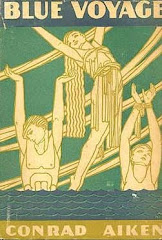
Sylvia Beach's Shakespeare and Company Bookshop was one of Malc's regular haunts while he was in Paris in 1934. (See Gordon Bowker Pursued By Furies Pg 175. Bowker recounts the tale that Malc famously missed a reading by James Joyce at the bookshop in February 1934 because Malc didn't think Joyce would turn up!
Sylvia Beach found the name of Adrienne Monnier’s bookshop in a French literary journal and decided to seek out the little store on the rue de l’Odéon when she was in Paris. She regularly attended the readings by authors such as André Gide, Paul Valéry andJules Romains. Inspired by the literary life of the Left Bank and by Adrienne’s efforts to promote innovative writing, Sylvia dreamed of starting a branch of Adrienne’s book shop in New York that would offer contemporary French works to American readers. Since her only capital was USD$3,000 which her mother gave her from her savings, Sylvia found that she could not afford such a venture in New York. However, Paris rents were much cheaper and the exchange rates favorable, so with Adrienne’s help, Sylvia opened an English language bookstore and lending library that she named Shakespeare and Company. Four years before she opened her shop, Adrienne had been among the first women in France to found her own bookstore. Beach's bookstore was located at 8 rue Dupuytren in the 6th arrondissement of Paris.
Shakespeare and Company quickly attracted both French and American readers—-including a number of aspiring writers to whom Sylvia offered hospitality and encouragement as well as books. As the franc dropped in value and the favorable exchange rate attracted a huge influx of Americans, Sylvia’s shop flourished and soon needed more space. In May 1921, Shakespeare and Company moved to 12 rue de l’Odéon, just across the street from Adrienne’s Maison des Amis des Livres. Shakespeare and Company gained considerable fame after it published James Joyce's Ulysses in 1922, as a result of Joyce's inability to get an edition out in English-speaking countries. Beach would later be financially stranded when Joyce signed on with another publisher, leaving Beach in debt after bankrolling, and suffering severe losses from, the publication of Ulysses.
Shakespeare and Company experienced difficulty throughout the Great Depression of the 1930s, but it managed to keep afloat by the generosity of Beach's circle of wealthy friends, including Bryher. In 1936 when Sylvia Beach thought that she would be forced to close her shop, André Gide organized a group of writers into a club called Friends of Shakespeare and Company. Subscribers paid 200 francs a year to attend readings at Shakespeare and Company. Although subscriptions were limited to a select group of 200 people (the maximum number the store could accommodate), the renown of the French and American authors participating in readings during those two years attracted considerable attention to the store. Sylvia Beach recalled that by then, “we were so glorious with all these famous writers and all the press we received that we began to do very well in business”. Shakespeare and Company remained open after the Fall of Paris, but by the end of 1941, Sylvia Beach was forced to close.
Sylvia Beach was interned for six months during World War II, but she kept her books hidden in a vacant apartment upstairs at 12 rue de l'Odeon. Symbolically, Ernest Hemingway"liberated" the shop in person in 1944, but it never re-opened for business.
Wikipedia







No comments:
Post a Comment